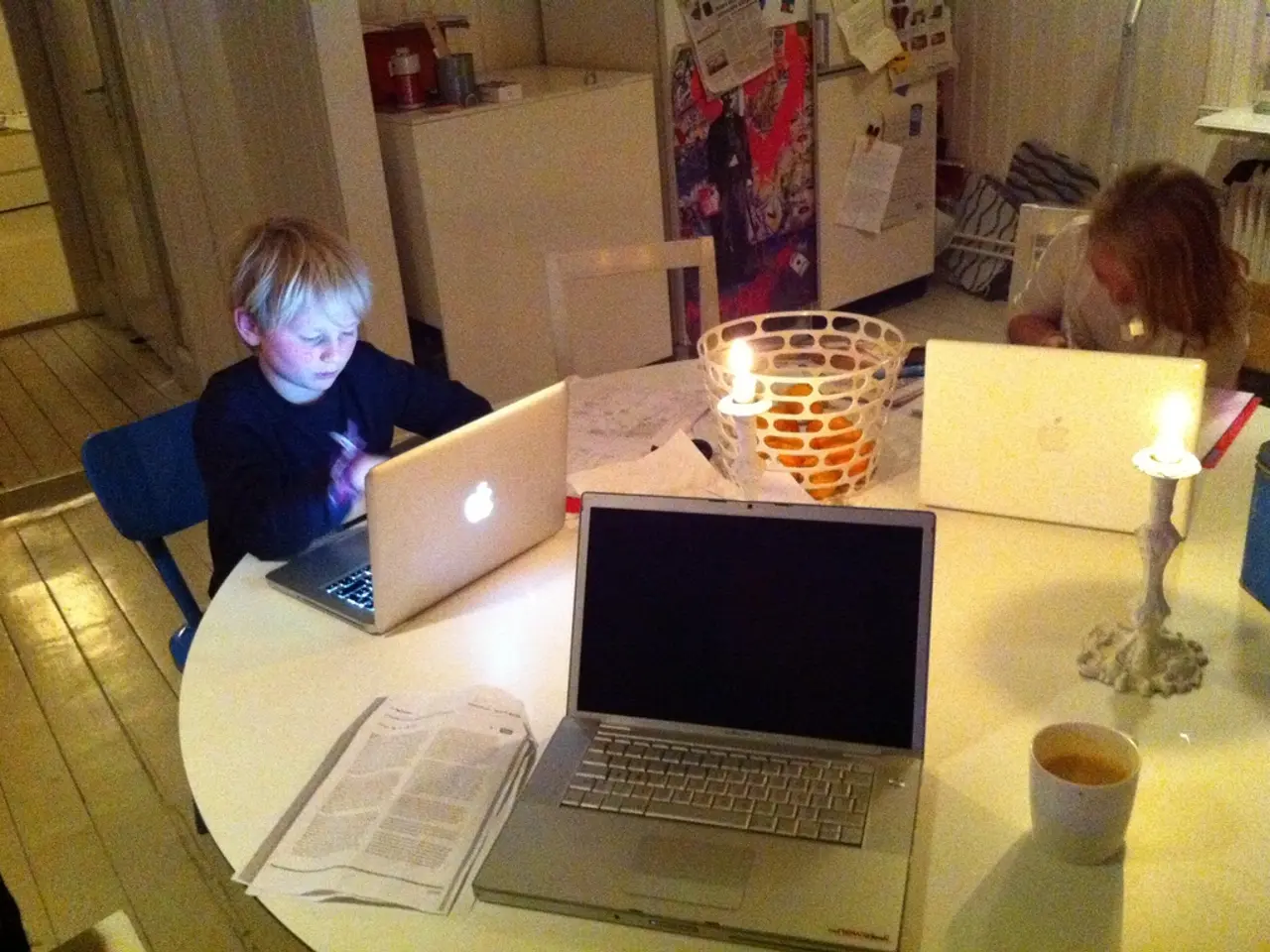Navigating sleep amidst the demands of IB curriculum: A guide.
=====================================================================================
For IB students navigating a demanding curriculum, maintaining a balanced routine is crucial for academic success and personal well-being. A comprehensive approach to managing sleep and study time can help students stay sharp and perform at their best.
Creating a Weekly Study Plan
A well-structured study plan is the foundation for efficient study habits. Blocking study hours, classes, breaks, and extracurricular activities realistically, often in focused 90-minute sessions with buffer times, helps maintain a steady pace without burnout. This approach, known as time blocking, allows students to make the most of their peak focus hours.
Using the Pomodoro Technique
Improving concentration and reducing mental fatigue is achievable through the Pomodoro Technique. This method involves studying in 25-minute intervals followed by 5-minute breaks, with longer breaks after four intervals. This rhythm helps maintain focus and productivity throughout study sessions.
Rotating Subjects and Time Blocking
Alternating subjects by days or weeks allows efficient use of mental energy and avoids oversaturation. For example, dedicating certain days for intensive subjects like Math and Science, and others for humanities or TOK/EE work. This approach ensures that students can give their full attention to each subject without feeling overwhelmed.
Setting Priorities and Milestones
Using to-do lists and milestone trackers, especially for large projects like Internal Assessments (IAs) and Extended Essays (EE), helps break tasks into manageable parts and prevent last-minute cramming. This strategy allows students to focus on one task at a time and make steady progress towards their goals.
Maintaining Healthy Sleep Patterns
Scheduling study to avoid late-night cramming and ensuring adequate, consistent sleep by balancing workload and rest periods reduces stress and improves cognitive function. IB students should aim for 7-9 hours of sleep each night to support memory consolidation and cognitive performance.
Support and Communication
Engaging with teachers, study pods, family, and friends for guidance and emotional support contributes to managing stress and enforcing a balanced routine. Sharing study plans, seeking advice, and discussing challenges can help students stay motivated and on track.
Tools for Effective Study and Sleep Management
RevisionDojo offers daily planners, Pomodoro timers, efficient study methods, and wellness content to help manage study and sleep effectively. Their AI-powered study schedules, flashcards, wellness articles, and structured routines help students stay well-rested and perform their best.
If home late from extracurriculars, shorten evening study time and use efficient methods like RevisionDojo quizzes to avoid late-night work. Naps can boost alertness if they are short (15-30 minutes) and taken in the early afternoon, but they should not interfere with nighttime sleep.
Blue light from devices suppresses melatonin, so it's recommended to switch off devices at least 30 minutes before bed. By following these strategies, IB students can handle their demanding curriculum efficiently while maintaining well-being.
References
- Educational experts' strategies for IB students
- Successful IB students' tips for managing study and sleep
- The Pomodoro Technique for IB students
- Effective study methods for IB students
- IB students' sleep habits and cognitive performance
- To enhance their learning experience, IB students could use RevisionDojo's flashcards within the education-and-self-development category for a more effective study session.
- Maintaining a balance between Science learning and ensuring enough sleep hours contributes significantly to a student's health-and-wellness and cognitive performance.
- Incorporating short learning sessions followed by breaks, like the Pomodoro Technique, promotes better focus and productivity during education-and-self-development activities, such as studying.




